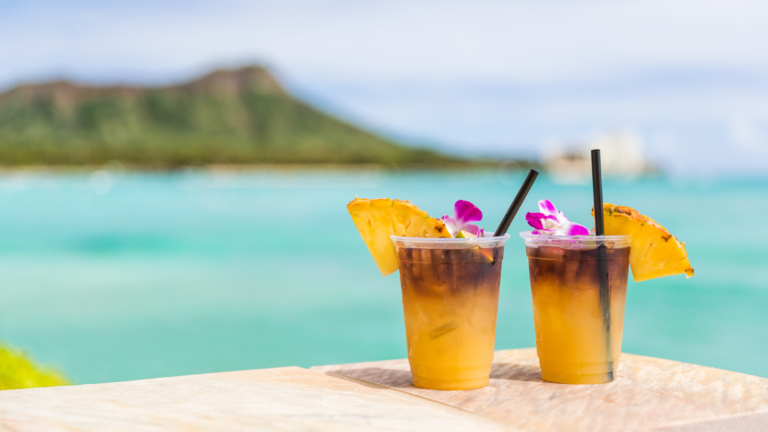Opening a Bali restaurant offers tremendous potential, especially as the island continues to draw millions of tourists each year. With its strong culinary culture, increasing digital adoption, and relatively lower operational costs compared to Jakarta, Bali has become a hotspot for entrepreneurs in the food and beverage industry. If you’re planning to break into this dynamic market, here are the key requirements you need to prepare for.
Why Bali is a Prime Location for Restaurant Investment
Bali outperforms Jakarta in terms of restaurant profitability despite having fewer food businesses. According to Statistics Indonesia, Bali recorded IDR 6.8 trillion (USD 430 million) in total revenue from 245,000 food and beverage establishments in 2023. In comparison, Jakarta generated only IDR 5.7 trillion (around USD 360 million) from 310,000 units. That means a restaurant in Bali earns nearly IDR 27.7 million monthly (roughly USD 1,750), almost double the average income in Jakarta.
Tourism plays a major role in this success. With over 6 million foreign visitors annually, Bali creates a massive demand for unique dining experiences. From fine dining spots to local warungs, restaurant owners can tap into a diverse and ever-growing market.
Crafting a Winning Bali Restaurant Business Plan
To launch a successful restaurant in Bali, you need a clear and detailed business plan. Key components include:
- Choosing a specific concept (e.g., cafe, fine dining, beachside grill)
- Defining your target market and buyer persona
- Outlining menu ideas, seasonal offers, and pricing strategies
- Estimating capital and monthly operating expenses
- Identifying key differentiators that set you apart
Understanding your market ensures your concept aligns with customer expectations and spending power.
Read More: 10 Essential Business License Types You Need in Indonesia
Legal Requirements for Opening a Restaurant in Bali
You must comply with local regulations to operate your restaurant legally. This begins by identifying the correct KBLI (Indonesian Business Classification) code. The most relevant KBLI for a Bali restaurant is 56101, which covers establishments that provide food and drink for on-site consumption.
Risk classification depends on your seating capacity:
- Fewer than 50 seats: Low risk
- 50 to 100 seats: Medium-low risk
- 101 to 200 seats: Medium-high risk
- Over 200 seats: High risk
Depending on the risk level, you’ll need to apply for additional certificates such as food safety (PB-UMKU) and hygiene compliance from the local health authorities.
Securing a Bali Restaurant Business License
The OSS-RBA (Online Single Submission Risk-Based Approach) system simplifies business registration in Indonesia. Here are the key licenses and documents required:
- NIB (Business Identification Number)
- NPWP (Tax Identification Number)
- Halal Certificate (if applicable)
- Standard Certificates for medium to high-risk establishments
- Hygiene and sanitation licenses for airports, ports, or border areas if relevant
With these in place, you can legally operate and expand your business while meeting regulatory standards.
Read More: Simplifying Business Permits: Indonesia OSS System Explained
Essential Factors to Consider Before Launch
Launching a Bali restaurant requires attention to operational and strategic details. Consider the following:
- Select a high-traffic location with easy access and parking
- Build relationships with reliable, local ingredient suppliers
- Use digital tools like Google My Business and social media to boost visibility
- Hire and train professional staff for consistent service quality
These steps will enhance customer satisfaction and strengthen your competitive edge in Bali’s thriving food scene.
Turn Your Bali Restaurant Dream into Reality
Starting a restaurant in Bali is an exciting venture, but it requires careful planning and a thorough understanding of Indonesia’s business regulations. From securing the right KBLI classification and obtaining business licenses to ensuring all safety and health are in place, navigating these legal steps can be complex. Having expert guidance is crucial to avoid setbacks and ensure a seamless setup.
Seven Stones Indonesia specializes in assisting business owners in providing expert support in legal compliance, business registration, and operational setup. With our guidance, you can focus on building your restaurant’s success while we handle the complexities of the legal process. Let Seven Stones Indonesia be your trusted partner in bringing your restaurant vision to life in Bali—contact us today and take the first step toward a smooth and successful business launch.
Source: smartlegal.id, founders.co.id, skillacademy.com, cnbcindonesia.com
Image: Christina Paukshtite / Pexels

















